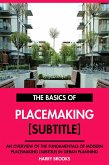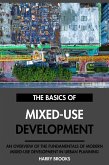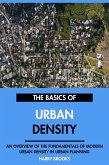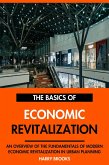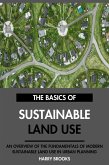Energy efficiency is not merely a technical concept; it is a philosophy that permeates various aspects of urban planning. It encompasses the design of buildings, transportation systems, and infrastructure, all aimed at minimizing energy consumption while maximizing functionality and livability. The principles of energy efficiency are rooted in the idea that we can achieve more with less, a notion that resonates deeply in a world grappling with finite resources and environmental degradation.
This eBook aims to provide readers with a thorough overview of energy efficiency in urban planning, exploring its fundamental concepts, practical applications, and the myriad benefits it offers. Each chapter will delve into specific aspects of energy efficiency, from the basics of energy consumption to advanced strategies for integrating renewable energy sources into urban environments. By examining real-world examples and case studies, readers will gain valuable insights into how cities can effectively implement energy-efficient practices and policies.
The importance of energy efficiency extends beyond environmental concerns; it is also a matter of economic viability and social equity. As cities strive to create inclusive and resilient communities, energy efficiency can serve as a catalyst for economic growth, job creation, and improved quality of life. By reducing energy costs for residents and businesses, cities can foster economic development while simultaneously addressing pressing social issues, such as poverty and inequality.
Throughout this eBook, we will emphasize the collaborative nature of urban planning and the critical role that various stakeholders play in advancing energy efficiency initiatives. From government agencies and private developers to community organizations and residents, everyone has a part to play in creating a more sustainable urban future. By fostering partnerships and encouraging public engagement, cities can harness the collective power of their communities to drive meaningful change.
As we embark on this exploration of energy efficiency in urban planning, it is essential to recognize that the journey is ongoing. The challenges we face today are complex and multifaceted, requiring innovative solutions and a commitment to continuous improvement. By embracing energy efficiency as a fundamental principle of urban planning, we can create cities that are not only more sustainable but also more vibrant, equitable, and resilient.
In the chapters that follow, we will delve deeper into the various dimensions of energy efficiency, examining its implications for urban design, transportation, and community engagement. We invite you to join us on this journey as we uncover the transformative potential of energy efficiency in shaping the cities of tomorrow.
Dieser Download kann aus rechtlichen Gründen nur mit Rechnungsadresse in A, B, CY, CZ, D, DK, EW, E, FIN, F, GR, H, IRL, I, LT, L, LR, M, NL, PL, P, R, S, SLO, SK ausgeliefert werden.



